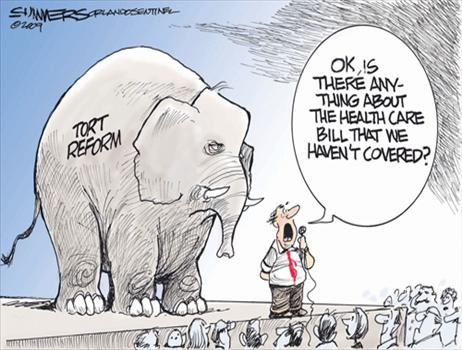Key Findings
- Physicians attribute 26 percent of overall healthcare costs to the practice of defensive medicine
- Of the physicians surveyed, 73 percent agreed that they had practiced some form of defensive medicine in the past 12 months
- Physicians indicating they had practiced a form of defensive medicine in the last twelve months attribute 21 percent of their practice to be defensive in nature
- Physicians attributed 34 percent of overall healthcare costs to defensive medicine
- Nine out of 10 physicians (92 percent) reported practicing defensive medicine
- In cases of true negligence, nine out of 10 (89 percent) physicians agree that patients receiving negligent treatment should be compensated
- Emergency room, primary care and OB/GYN physicians are most likely to practice defensive medicine
- Younger physicians and female physicians reported less tolerance for risk and are more likely to practice defensive medicine;
- 35 percent of diagnostic tests were ordered to avoid lawsuits
- 29 percent of lab tests were ordered to avoid lawsuits
- 19 percent of hospitalizations were ordered to avoid lawsuits
- 14 percent of prescriptions were ordered to avoid lawsuits
- 8 percent of surgeries were performed to avoid lawsuits
- Practicing “rule-out medicine” vs. “diagnostic medicine”
- Physicians appear afraid to trust their own clinical judgment and trust first-round tests, resulting in tests to confirm the results of tests
- Physicians expressed concern over not only missing a diagnosis, but being charged with delay in diagnosis
- Patients are viewed as plaintiffs, not partners
- Patient access to medical information and self-diagnoses via the web has increased physician compliance with patient demands in an effort to avoid lawsuits
- Physicians avoid high risk patients, because a bad outcome increases chances of litigation
- Physicians avoid procedures and practices that would increase medical malpractice insurance premiums, thereby limiting patient access to treatment
- Physicians are considering leaving the profession
Jackson Healthcare commissioned the Gallup survey after observing these startling findings in their own polling. Rick Jackson, 30 year CEO of Jackson Healthcare, sat down with HTN to provide some background and insights.
HTN: What led you to conduct these polls and what was your personal reaction?
Rick Jackson: We felt we should ask physicians, who write the purchase order for most healthcare costs, what their opinion was on the Democratic and Republican version of healthcare reform. They came back overwhelmingly that changes have to be made in the legal system beyond capping malpractice and stabilizing the insurance market. They felt we need true tort reform to eliminate the practice on defensive medicine. We then surveyed them on their opinions and practice of defensive medicine and were surprised by the findings. We commissioned Gallup to do an independent survey on this issue and the results were very close to our own survey. We were surprised by the emotion of the physicians and the findings from our survey.
HTN: What are the root causes behind defensive medicine?
Rick Jackson: Physicians are personally liable for any mistakes they make. Even if covered by malpractice insurance should an award exceed that amount the physician is personally liable. This environment causes them to assume a very defensive posture when interacting with patients. They have learned from their mentors “war stories” that it is always better to order tests, medication and treatments to prove that a condition exists and just as importantly that other conditions do not exist in their patients.
HTN: What are the policy implications?
Rick Jackson: If we could get our lawmakers to focus legal issues beyond what they describe as tort reform we could save the country between $650-$850 billion dollars PER YEAR. Physicians are leaving the profession in significant numbers. With the current environment, physicians are recommending their sons and daughter to NOT go into medicine. With the population demographics dictating the need for more physicians in the future, this is a disturbing trend.
HTN: What reactions are you getting to the poll? From physicians? From Congress?
Rick Jackson: We are pleasantly surprised that the dialogue has started including talk of defensive medicine. Our story was covered on CNN, and now there are stories on defensive medicine in Newsweek, MSNBC and other media outlets. Dr. Senator Coburn talked about our results at the Healthcare Summit. The physicians have had many positive comments. We also met with the policy people from Senators Coburn and McConnell as well as Congressmen Boehner and Price.
Part II of the interview with Rick Jackson will appear in a subsequent post.










1 comment:
Appreciate your interest in this topic and your interview with Rick. I hope your readers discover the multiple ripple effects of defensive medicine, and see it in ways they had not before.
More importantly, I hope this moves us toward a collective action to fix the problem. Improved patient care and our fiscal future in the U.S. are worth the effort it will take.
Sincerely,
Keith Jennings (Jackson Healthcare)
Post a Comment